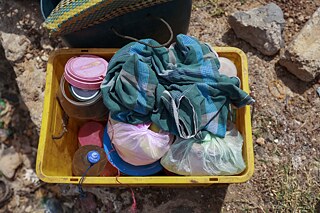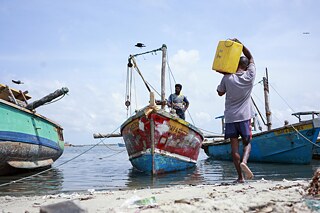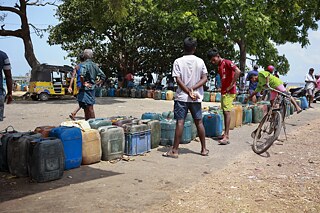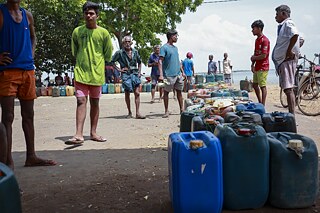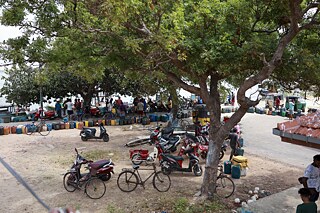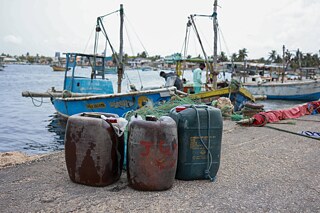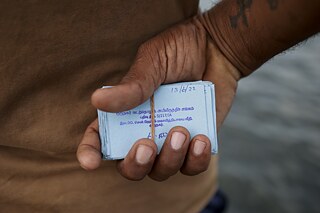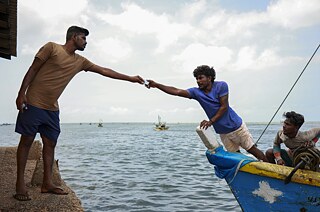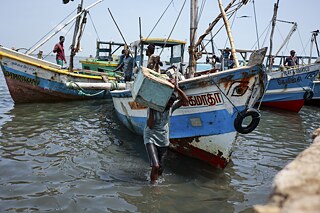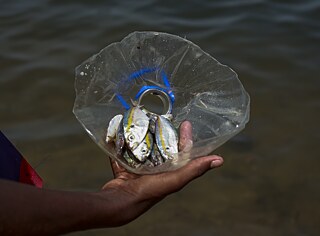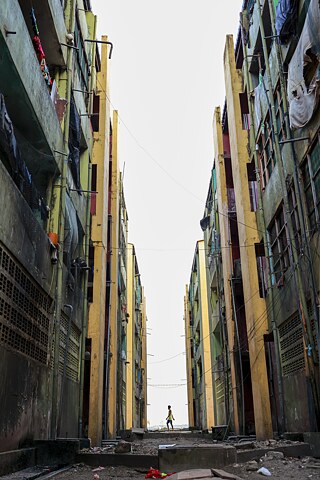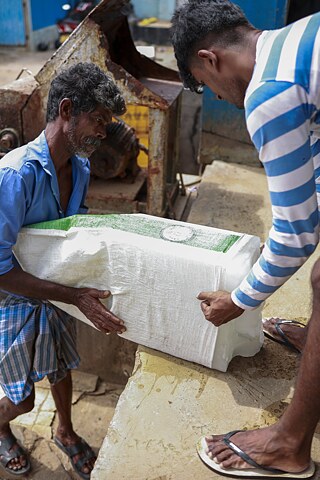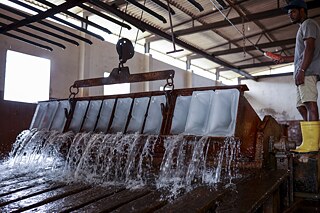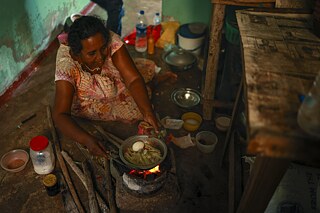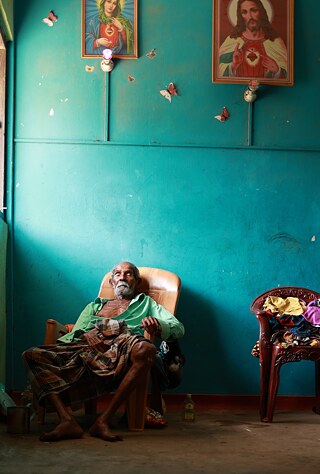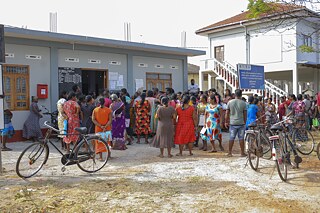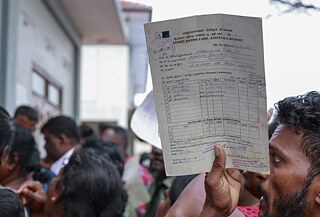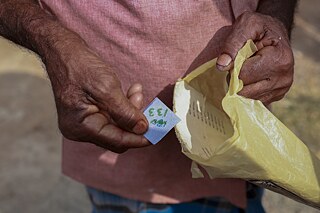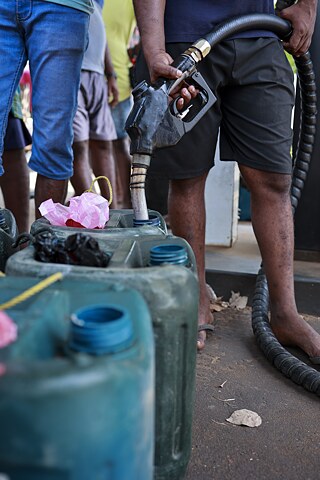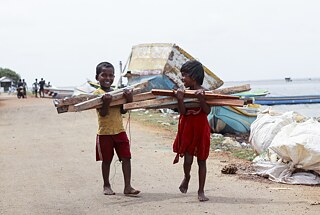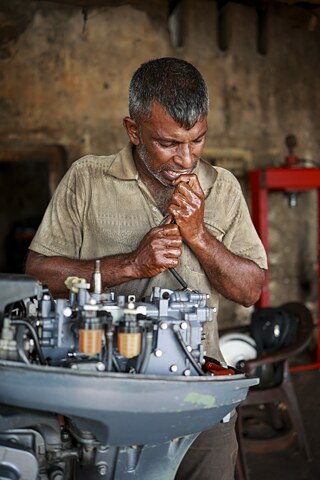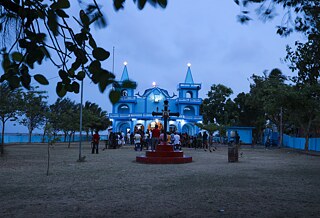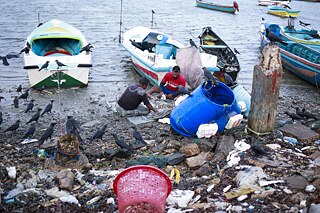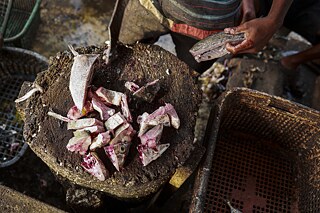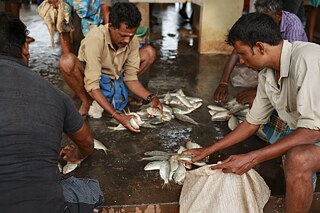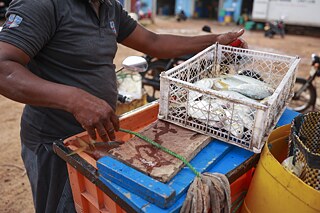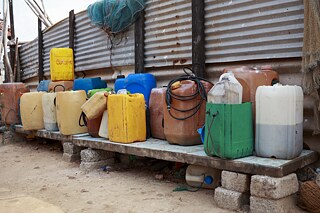While all sections of people and vocations face serious challenges in the current economic crisis in the country, the difficulties encountered by the fishing communities in their occupation and day to day life are worse due to the shortage of fuel. The suffering is intense in the case of the Kurunagar fisherfolk.
© Pirainila Krishnarajah
1/27
The Kurunagar community, having 400 trawlers and 375 small boats, now deploy only 200 deep-seatrawlers and 120 small boats. Once in 10 days, or whenever the tanker comes only, they get diesel and kerosine (Info: Kurunagar Fisheries Society).
© Pirainila Krishnarajah
2/27
Due to the current situation, they spend around Rs 37,000 per trip for fuel and food. Small boats need an average of 50-60 litres of kerosine, but they get only 20 litres, that too occasionally. Unable to pursue their profession, many have left fishing and have gone for other jobs.
© Pirainila Krishnarajah
3/27
Responding to kerosine shortage and its black-market price, which is about Rs600-1000 per litre, some have triedfitting the boats with petrol engines as an alternative, but there were instances that such engines soon became inflammable.
© Pirainila Krishnarajah
4/27
Economic crisis has affected their family life too.Accustomed mainly to seafood, they now go through changes in food habits. Education of children is affected because of poverty arising from the lack of steady income in fisheries. As kerosine is given only for the boats, severe mental stress sets in when deprived of cooking at home and when there is power cut. Congested living space prevents them from using firewood as an alternative to gas or other fuel.
© Pirainila Krishnarajah
5/27
Prawns are their main income-fetching item.Fish and prawn catch is now depleted, but ice is needed even to preserve the meagre supply. Since there is no 24-hours electricity, only half-formed ice is available, and this affects processing and export. Due to reduction in deep-sea fishing, formerly neglected small species of fishes are now consumed and they too aresold for a higher price.
© Pirainila Krishnarajah
6/27
Besides, many workers depending on fisheries, such as fish cutters and small-scale venders alsoundergo social and livelihood struggle.
© Pirainila Krishnarajah
7/27
Already endangered by an afflicted sea that is 82 percent polluted by plastic waste, and now subjected to this massive economic catastrophe, the question looms large how Kurunagar is going to progress its fisheries, future and posterity.
© Pirainila Krishnarajah
8/27
© Pirainila Krishnarajah
9/27
© Pirainila Krishnarajah
10/27
© Pirainila Krishnarajah
11/27
© Pirainila Krishnarajah
12/27
© Pirainila Krishnarajah
13/27
© Pirainila Krishnarajah
14/27
© Pirainila Krishnarajah
15/27
© Pirainila Krishnarajah
16/27
© Pirainila Krishnarajah
17/27
© Pirainila Krishnarajah
18/27
© Pirainila Krishnarajah
19/27
© Pirainila Krishnarajah
20/27
© Pirainila Krishnarajah
21/27
© Pirainila Krishnarajah
22/27
© Pirainila Krishnarajah
23/27
© Pirainila Krishnarajah
24/27
© Pirainila Krishnarajah
25/27
© Pirainila Krishnarajah
26/27
© Pirainila Krishnarajah
27/27
